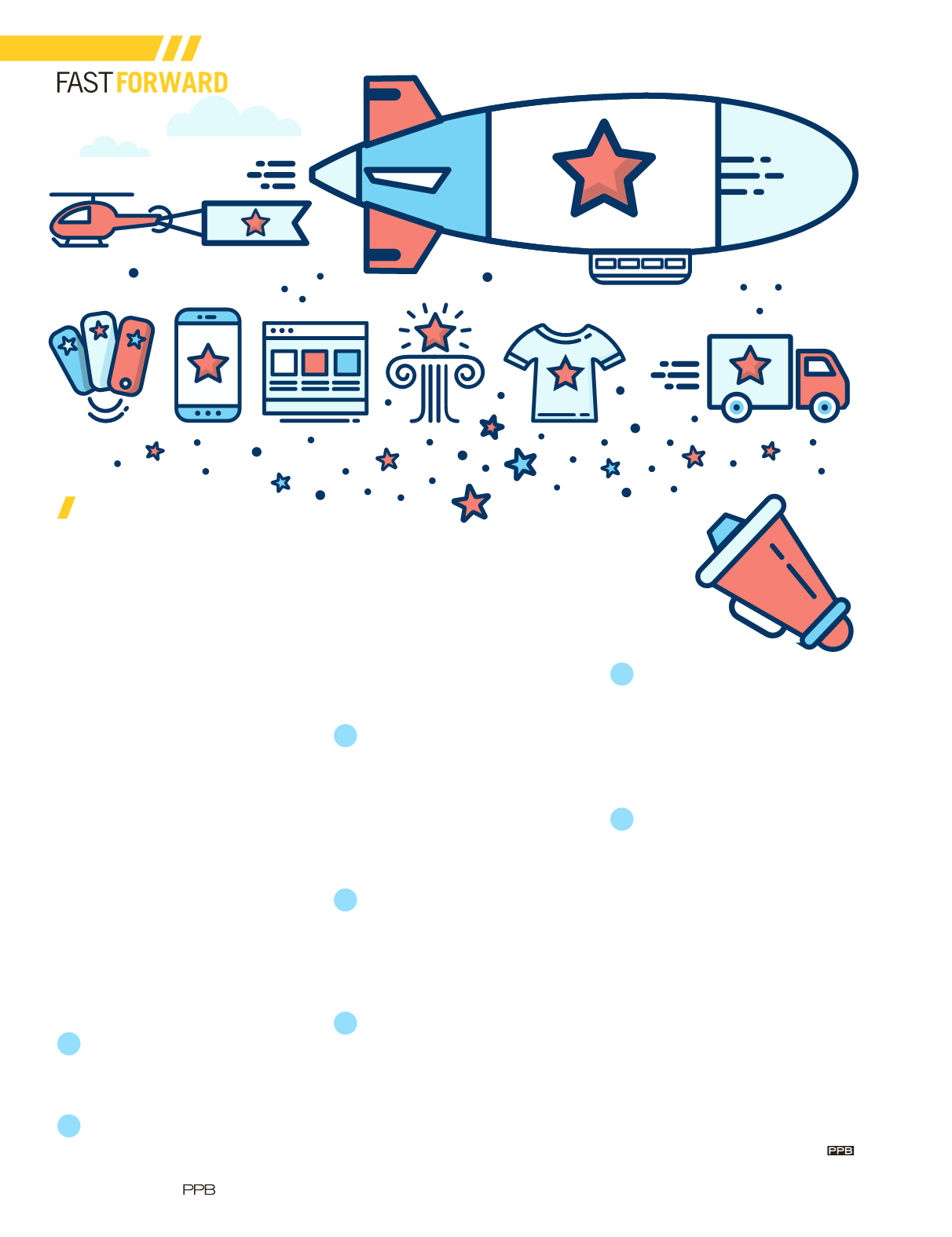

BRANDABLE
Brand And Deliver
Your brand makes a promise—don’t break it.
As a B2B company, your brand does more
than serve as an identity; it also serves as a
reminder of the promises you make to your
customers. A study conducted by McKinsey
& Company showed that business buyers rely
heavily on vendor reputation to help them make
purchasing decisions—sometimes more so
than asking questions about service, pricing,
product availability and quality.
It’s not that these aspects of a business
aren’t important; rather, the reputation
conveyed by a brand serves as a shortcut
to the answers. Rather than existing as a
marginal element of a company’s value
proposition, brand plays a central role.
So what does it look like when a company
breaks a brand promise? Brand strategy expert
Mark DiSomma shares these seven examples:
1
Overpromising and under-delivering.
A
brand doesn’t do what it promises, either
willingly or because it is unable to.
2
Delivering on your expectations rather
than the consumer’s.
Does your
customer know what you’re promising?
If not, chances are high that you’ll give
them ‘X’ when they were expecting ‘Y.’
3
Attaching conditions to your
promise.
Will you deliver on your
promise only if consumers can meet
stringent requirements or unrealistic
qualifications? If so, you aren’t truly
prepared to give your customer what
you’ve promised.
4
Delaying fulfillment.
Whether you miss
delivering on a promise by the expected
deadline, or you take too long to resolve
a customer issue with the promise itself,
trust in a brand can erode quickly.
5
Failing to launch the promise.
Even
worse than under-delivering is not
delivering on a promise at all. If your
product or service isn’t ready to share,
don’t promote it in the hopes that it will
be by the time consumers are ready to
ask for it.
6
Promising the obvious.
If you’re
trying to sell a service that customers
already expect, you’re merely
committing to the minimum, which
your customers can get somewhere
else for less—if not for free.
7
Promising what everyone else
already has delivered.
Promises
that appear to be unique at first
can quickly become the norm when
other companies deliver on them
before you do. Stay in tune with the
marketplace to ensure your brand
is promising something unique and
hard to replicate.
Brand promises, simply stated, tell
customers what a company can and will
do for them, and how it will be done. Of
course, promises can have both explicit
and implicit intentions, and the challenge
for the company is to learn what its
promises mean to the customer first.
70
|
JANUARY 2017
|
THINK
















